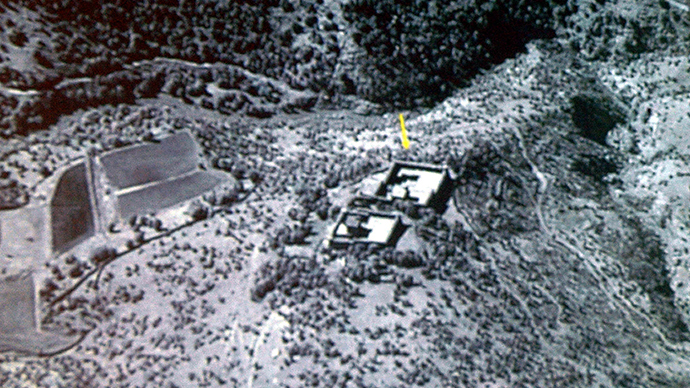Snowden files reveal US has increased surveillance in Pakistan

Top-secret intelligence community documents recently leaked to the Washington Post reveal that the United States has ramped up its surveillance of Pakistan’s nuclear program.
The documents — detailed, previously unpublished funding requests from America’s top intelligence agencies — were first disclosed in part on Thursday when the Washington Post said it had proof that America’s main spy offices looked to receive $52.6 billion in fiscal year 2013. Upon further analysis of the so-called “black budget,” the Post has since discovered that the US is increasing efforts to spy within Pakistan in order to understand more thoroughly the supposed ally’s nuclear arms arsenal.
According to the Post, researching the black budget has led journalists to determine that US officials believe there is a significant intelligence gap with regards to Pakistan, and that the US is more interested than ever in that nation’s nuclear capabilities amid what may be the comparably best relationship the two countries have experienced in over a decade.
Despite nearly 12 years of heavy US military activity following the September 11, 2001 terrorist attack, American/Pakistani tensions have loosened as of late, presumably after a drawback in localized drone strikes and other covert combat that has subsided since US Navy SEALS captured and killed former al-Qaeda leader Osama bin Laden in rural Pakistan in May 2011.
Although the Post has not released the 178-page black budget in full, it has selectively published a handful of excerpts and quoted from it extensively in a number of articles to appear in print and online since last week. According to the Post’s Greg Miller, Craig Whitlock and Barton Gellman, the latest disclosures identified through analysis of the top-secret documents “expose broad new levels of US distrust in an already unsteady security partnership with Pakistan,” and “also reveal a more expansive effort to gather intelligence on Pakistan than US officials have disclosed.”
The document, reported the Post, divulges uncertainty within the US intelligence community regarding Pakistan, particularly in reference to the country’s nuclear capabilities. One excerpt of the budget quoted by the Post warned that “knowledge of the security of Pakistan’s nuclear weapons and associated material encompassed one of the most critical set of . . . intelligence gaps.” According to the Post, US officials were concerned about those “given the political instability, terrorist threat and expanding inventory [of nuclear weapons] in that country.”
The paper also noted that while Pakistan’s name is frequently absent from the budget request, the counterterrorism and counter-proliferation operations waged by the US are centralized in that nation, nestled in the Middle East between Iraq, Afghanistan and India. Taking into account just its counterterrorism and counter-proliferation measures, the US intelligence community sought more than $27 billion in FY2013 — or around half of what was requested in all — most of which is likely spent on covert operations. Former and current US intelligence officials who spoke to the Post said the armed drone campaign that targets al-Qaeda militants on the Pakistan/Afghanistan border is among the most expensive of those covert programs.
So significant are US concerns with regards to monitoring weapons of mass destruction in Pakistan, the Post reported that the budget contains once section in which it focuses on containing the spread of illicit weapons among two geographic regions: Pakistan and elsewhere.
The Post reported that budget suggests Pakistan contains 120 nuclear weapons, although US intelligence agencies suspect that number will soon rise. In order to better understand that nation’s nuke program, the budget discusses the creation of a Pakistan WMD Analysis Cell, the paper reported, in order to keep tabs on where nuclear materials move within the country. Together, the Post claimed, the CIA and Pentagon were able “to develop and deploy a new compartmented collection capability” that delivered a “more comprehensive understanding of strategic weapons security in Pakistan.”
Despite that accomplishment, however, the budget still noted that “the number of gaps associated with Pakistani nuclear security remains the same,” and “the questions associated with this intractable target are more complex.”
"If the Americans are expanding their surveillance capabilities, it can only mean one thing," former Pakistani ambassador to the US Husain Haqqani told the Post, "The mistrust now exceeds the trust."
Caitlin Hayden, a spokesperson for the National Security Council, explained to the Post that the US is "committed to a long-term partnership with Pakistan, and we remain fully engaged in building a relationship that is based on mutual interests and mutual respect."
"We have an ongoing strategic dialogue that addresses in a realistic fashion many of the key issues between us, from border management to counterterrorism, from nuclear security to promoting trade and investment," she said.
"The United States and Pakistan share a strategic interest in combating the challenging security issues in Pakistan, and we continue to work closely with Pakistan's professional and dedicated security forces to do so,” added Hayden.
The Post first published excerpts of this year’s black budget on Thursday and attributed the top-secret disclosure to Edward Snowden, the former intelligence contractor who fled from the US earlier this year and has since been granted asylum in Russia. In the days since the paper began working on the latest Snowden leak it has published a previously undisclosed figure for the amount of money requested by the likes of the National Security Agency and Central Intelligence Agency, and also exposed a program of offensive cyber operations waged by US officials against foreign foes.














